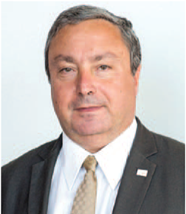Toward to “Lighting 4.0” era – The “Right Smart Lighting” Challenge
During the last decade, SSLs-Solid-State Lighting based on components like LEDs, OLEDs and LDs, challenges conventional technologies. In particular, LED has turned into a game changer beating the conventional technologies in all aspects. It is therefore anticipated that in short term, all of electric lighting will be based on SSLs. Today, SSLs proceed to the projected conclusion: replacing all legacy technologies, this is a major change in the lighting market that is considered as a revolution.
Artificial light production absorbs around 2 900 TWh corresponding 16,5% of the world’s electricity annual production. Historically speaking, past century’s research and development focused on single energy efficacy enhancement. The only massive adoption of SSLs during the next years can contribute to harness electricity use for lighting, up to 4% by 2030.
As SSL technology matures, maximizing the energy savings from connected SSL systems will become increasingly dependent on successful integration into the built environment. Today, we are witnessing a transition from the conventional “analogue” lighting technologies to “digital” lighting. Intelligent lighting will become the backbone for smart homes and smart cities. This way, lighting will become the heart of the “Internet of Things”. Consequently, we knowingly were not serving society as effectively as we could. Industry has coined a new term “human-centric lighting” (HCL) to draw renewed attention to its primary effort to be successful in meeting society’s needs.
Last but not least, “rebound effect”, known also as “Jevons paradox”, can seriously blur this march forward. One potential solution to avoid that negative effect consists on switching to smart human-centric lighting driven by both “application efficiency” and quality of light. This just means that next gen lighting systems should provide the “Right Light” with the best efficiency and quality, when and where it is needed.
This lecture will highlight all the above-mentioned issues and will focus on the future of the lighting systems.
Date and Time
Location
Hosts
Registration
-
 Add Event to Calendar
Add Event to Calendar
Speakers
 Prof. Georges ZISSIS of University of Toulouse
Prof. Georges ZISSIS of University of Toulouse
Toward to “Lighting 4.0” era – The “Right Smart Lighting” Challenge
Biography:
Prof. Georges ZISSIS, PhD, SMIEE, President IEEE Industrial Application Society (2019-20), Vice-Rector Toulouse 3 University (2020-23). Born in Athens in 1964, has graduated in 1986 from Physics department of University of Crete in general physics. He got his MSc and PhD in Plasma Science in 1987 and 1990 from Toulouse 3 University (France). He is today full Professor in Toulouse 3 University (France). His primary area of work is in the field of Light Sources Science and Technology. He is especially interested in the physics of electrical discharges used as light sources; system and metrology issues for solid-state lighting systems; normalization and quality issues for light sources; impact of lighting to energy, environment, quality of life, health and security; interaction between light source and associated power supply; illumination and lighting. He is director of “Light & Matter” research group of LAPLACE that enrolls 20 researchers. He won in December 2006 the 1st Award of the International Electrotechnical Committee (IEC) Centenary Challenge for his work on normalization for urban lighting systems (in conjunction with IEEE, IET and the Observer). In 2009, he won the Energy Globe Award for France and he got the Fresnel Medal from the French Illuminating Engineering Society. In 2011 has been awarded the title of Professor Honoris Causa of Saint Petersburg State University (Russian Federation) and he was President of the Power Electronics, Electronics, Optoelectronics and System section of the French National Council of Universities for the period 2014-19.
Email:
Address:University of Toulouse 3, LAPLACE laboratory, Toulouse , France

